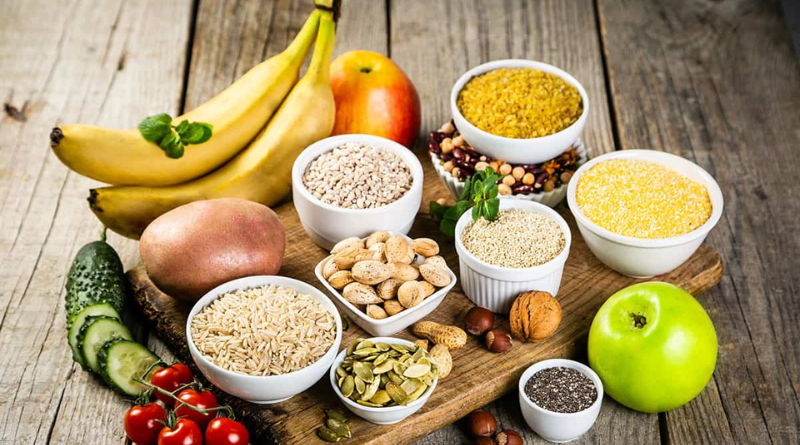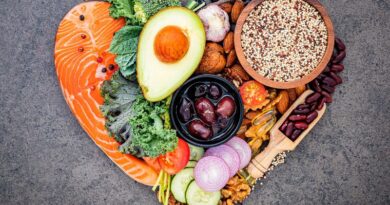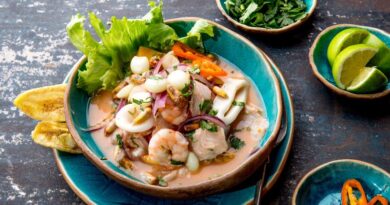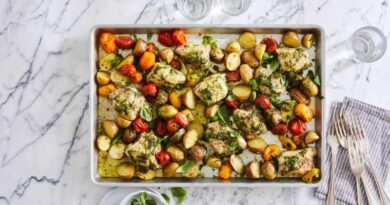As the new year begins, many people set goals to improve their health, like exercising more, spending wisely, or eating better. In fact, a Statista survey reveals that eating healthier is the second most popular resolution for 2025.
If you’re looking to clean up your diet and boost your energy, adding specific foods can make a big difference. We spoke to nutrition experts to identify the top energy-boosting foods to keep you fueled throughout the day.
7 Best Foods to Boost Your Energy
1. Oats

Oats are a nutrient-dense and versatile food, ideal for providing sustained energy throughout the day. As a complex carbohydrate, oats break down slowly in the body, offering a steady release of glucose into the bloodstream. This helps maintain stable energy levels and prevents the mid-day energy slump. Oats are particularly rich in beta-glucan, a type of soluble fiber that slows digestion and stabilizes blood sugar, keeping you feeling full for longer. They’re also a good source of iron, which supports oxygen transport in the blood, and B vitamins, which are crucial for energy metabolism and converting food into usable energy.
How to eat them: Start your day with a warm bowl of oatmeal, topped with fresh fruit, nuts, or seeds for added nutrients. Add oats to smoothies for extra fiber, use them as a base for granola bars, or incorporate them into baked goods like muffins or pancakes.
Also Read- 10 Winter Salad Recipes: Fresh, Healthy, and Full of Flavor
2. Avocados

Avocados are a unique fruit packed with healthy monounsaturated fats, making them an excellent energy source. These fats help slow digestion, providing a steady supply of energy while maintaining stable blood sugar levels. Avocados are also high in dietary fiber, supporting digestive health and preventing energy dips. Additionally, they’re rich in B vitamins, particularly folate, which aids in converting food into energy. Regular consumption of avocados has been linked to improved heart health, as they help reduce LDL (bad) cholesterol and increase HDL (good) cholesterol. Their creamy texture and mild flavor make them incredibly versatile in various recipes.
How to eat them: Add sliced avocado to your salads, sandwiches, or wraps. Mix them into smoothies for a creamy consistency or mash them into guacamole to enjoy with whole-grain crackers or fresh vegetables. You can also spread avocado on toast with a sprinkle of salt and pepper for a simple, energy-boosting snack.
3. Salmon

Salmon is a top-tier energy-boosting food, thanks to its high-quality protein and omega-3 fatty acids. These essential fats play a critical role in reducing inflammation, improving heart health, and supporting brain function. Omega-3s play a key role in muscle repair and recovery, making salmon an ideal choice for those with active lifestyles. The B vitamins found in salmon, especially B6 and B12, are essential for energy production and the creation of red blood cells, which transport oxygen throughout the body. Regular consumption of fatty fish like salmon can improve endurance and physical performance.
How to eat it: Grill or bake salmon for a quick, flavorful meal. Serve it alongside roasted vegetables or a crisp salad for a well-rounded dinner. You can also add flaked salmon to pasta dishes, grain bowls, or sandwiches. For a convenient option, use canned salmon to make patties or mix it with avocado for a protein-packed spread.
4. Beans

Beans are a nutrient powerhouse and one of the most budget-friendly energy-boosting foods. They are rich in complex carbohydrates, providing a slow and steady energy release. Their high fiber content keeps you full for hours, promotes gut health, and helps stabilize blood sugar levels. Beans are also an excellent plant-based protein source, making them ideal for vegetarians and vegans. Additionally, they are loaded with essential nutrients like iron, magnesium, and folate, all of which support energy metabolism and overall health.
How to eat them: Incorporate beans into soups, stews, or chili for a hearty meal. Add black beans or kidney beans to tacos, salads, or grain bowls. For a quick snack, mash chickpeas into hummus and enjoy with veggie sticks or whole-grain crackers. Lentils can be used to make veggie burgers or added to curries and casseroles for extra protein and fiber.
5. Berries

Berries are not only delicious but also an excellent natural energy source. They are packed with simple sugars, providing a quick energy boost, while their high fiber content ensures sustained energy without causing sugar crashes. Berries are also rich in antioxidants like vitamin C, which combats oxidative stress and supports overall energy production. Their anti-inflammatory properties and hydration-boosting qualities make them a great addition to any diet. Studies suggest that regular berry consumption may enhance brain function, improve memory, and support heart health.
How to eat them: Add berries to your morning cereal, yogurt, or oatmeal for a nutrient-packed breakfast. Blend them into smoothies for a refreshing drink or use them as a natural sweetener in baked goods. You can also sprinkle them over salads or pair them with dark chocolate for a healthy dessert option.
6. Nuts and Seeds
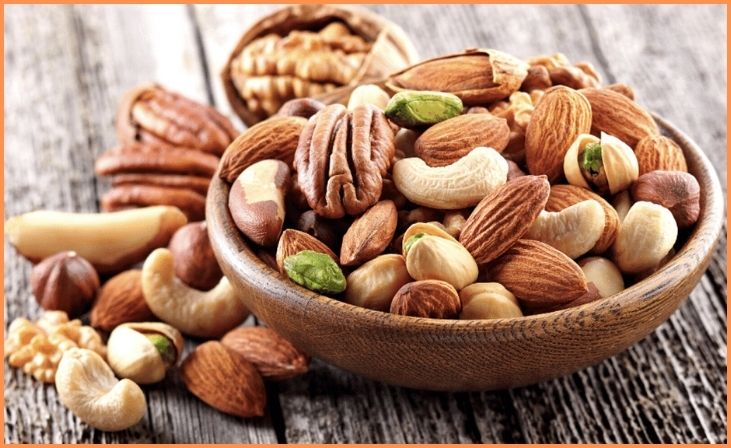
Nuts and seeds may be small, but they pack a powerful punch when it comes to boosting energy. They are loaded with healthy fats, particularly omega-3 and monounsaturated fats, which provide long-lasting energy. They also contain protein and fiber, which help stabilize blood sugar levels and keep hunger at bay. Magnesium, found abundantly in nuts and seeds, is essential for energy production and muscle function. Additionally, they’re a rich source of B vitamins, which play a key role in converting food into energy.
How to eat them: Enjoy a handful of mixed nuts and seeds as a portable snack. Add them to oatmeal, yogurt, or salads for extra crunch and nutrients. Use ground flaxseeds or chia seeds in smoothies or baked goods. Nut butters, like almond or peanut butter, can be spread on whole-grain toast or paired with apple slices for a satisfying, energy-packed snack.
7. Greek Yogurt
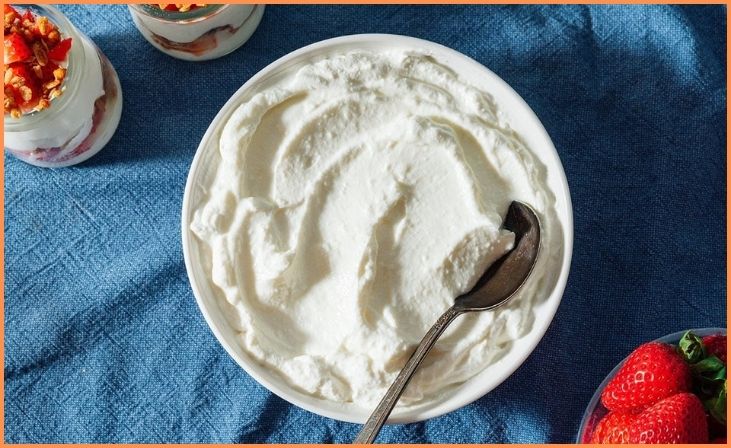
Greek yogurt is a protein-rich food that provides a great balance of macronutrients for sustained energy. It contains carbohydrates from lactose (milk sugar) and high-quality protein, which helps regulate blood sugar levels and provides steady energy throughout the day. Probiotics in Greek yogurt also support gut health, which can impact overall energy and digestion. Fortified Greek yogurt is an excellent source of vitamin D, which aids in muscle function and metabolic processes, further enhancing energy levels.
How to eat it: Use Greek yogurt as a base for smoothies, mixing it with fruits and greens. Add it to granola or top with nuts and seeds for a filling snack. Substitute it for sour cream in recipes or use it in creamy dressings and dips. Greek yogurt can also be a great addition to desserts, like parfaits or baked goods, for a healthy twist.
For More- 9 Easy Seafood Dishes Ready in 30 Minutes or Less
Conclusion
The key to sustained energy lies in balance and consistency. Incorporating a mix of healthy fats, complex carbohydrates, protein, fiber, and essential vitamins and minerals can help you power through your day without relying on caffeine or sugary snacks. Start with one or two of these energy-boosting foods and gradually make them a regular part of your diet. With time, you’ll notice improved energy levels, enhanced focus, and better overall health. Remember, what you eat today sets the tone for how you feel tomorrow.
FAQs
How quickly will I feel the energy-boosting effects of these foods?
The time it takes to feel the effects depends on the food and your metabolism. Foods like berries and Greek yogurt can provide a quick energy boost, while others like oats and nuts provide sustained energy over several hours.
Can I eat these foods daily?
Yes! These foods are generally safe for daily consumption as part of a balanced diet. However, portion control is key, especially with calorie-dense options like nuts and avocados.
Are there other energy-boosting foods I should consider?
Yes, other options include sweet potatoes, eggs, leafy greens, and bananas. These also provide essential nutrients for sustained energy.

